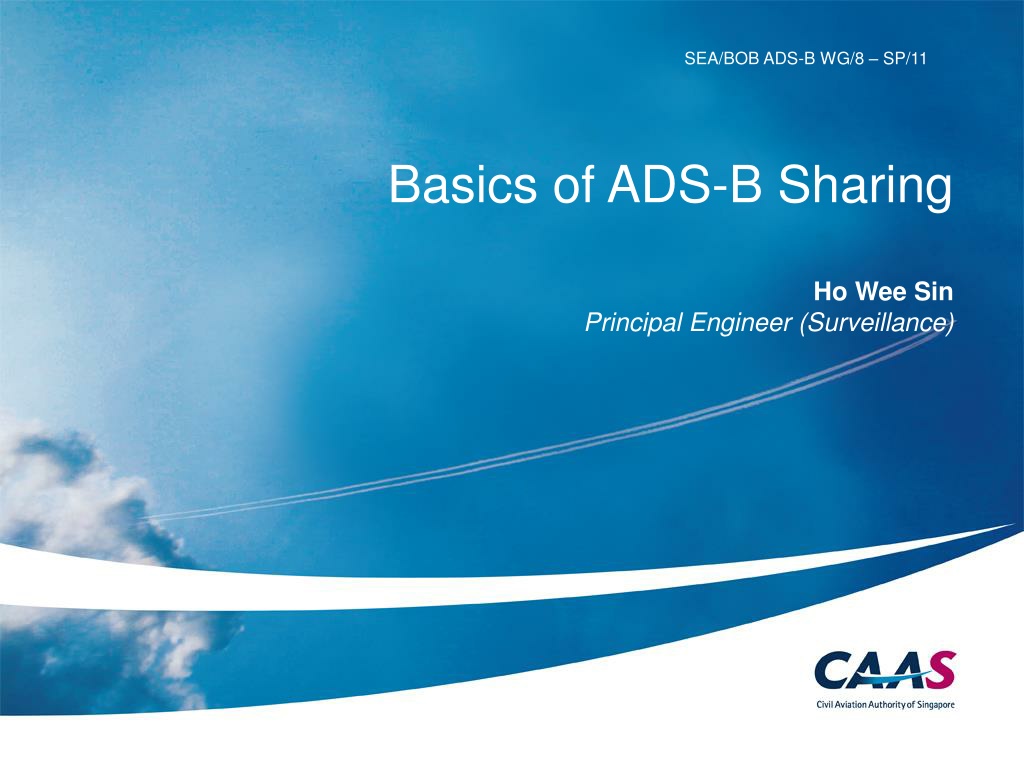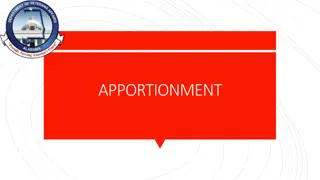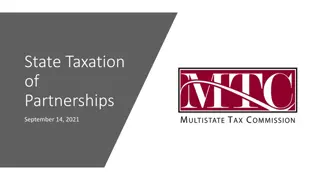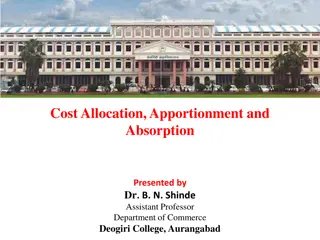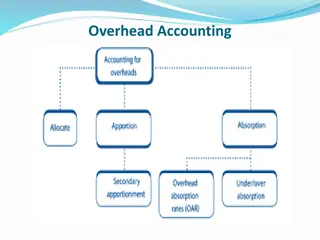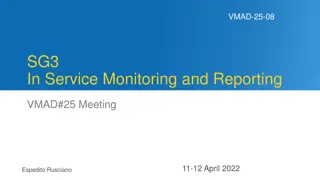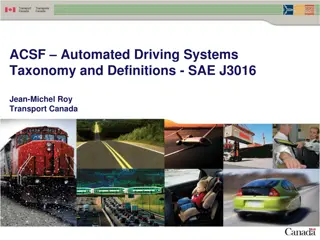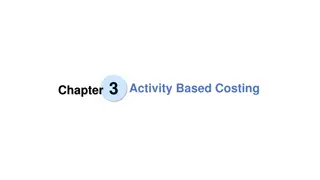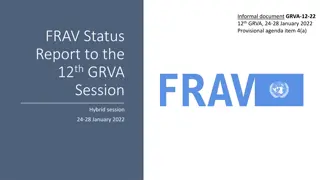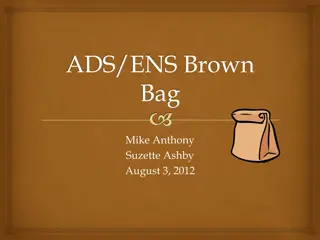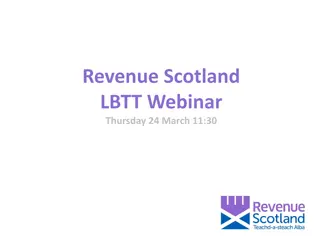Principles of ADS-B Cost Apportionment and Service Arrangements
Understanding the principles of cost apportionment in ADS-B systems is crucial for effective service arrangements. The general user-pay principle dictates that the owner ANSP bears the installation and maintenance costs if the ADS-B ground station serves their needs solely. However, when providing surveillance data to adjacent ANSPs, cost-sharing arrangements can be negotiated. Various factors such as service level tiers and cross-border data exchanges influence the cost apportionment decisions. This comprehensive overview delves into the intricate details of allocating costs and establishing service agreements in the realm of ADS-B technology.
Uploaded on Oct 02, 2024 | 0 Views
Download Presentation

Please find below an Image/Link to download the presentation.
The content on the website is provided AS IS for your information and personal use only. It may not be sold, licensed, or shared on other websites without obtaining consent from the author. Download presentation by click this link. If you encounter any issues during the download, it is possible that the publisher has removed the file from their server.
E N D
Presentation Transcript
SEA/BOB ADS-B WG/8 SP/11 Basics of ADS-B Sharing Ho Wee Sin Principal Engineer (Surveillance)
Contents Cost Apportionment Principles Arrangements to Provide Services Data Sharing Agreement
COST APPORTIONMENT PRINCIPLES
Cost-Apportionment Principles General: User-pay principle If an ADS-B GS serves solely (or significantly) the need of the owner ANSP, the cost of installation and maintenance should be borne by the owner ANSP.
Cost-Apportionment Principles If an ADS-B GS provides surveillance data to the owner ANSP as well as the adjacent ANSPs, the owner ANSP may, if it desires to do so, work out the cost apportionment with the adjacent ANSPs. The cost components below may be considered: (i) installation of the ADS-B ground station; (ii) maintenance & operations of the ADS-B ground station; and (iii) sharing of ADS-B surveillance data.
Cost-Apportionment Principles If it is necessary for an ADS-B ground station to be installed in one State which serves solely (or significantly) the needs of an adjacent ANSP (the user ANSP), the cost of installation and maintenance of the ADS-B ground station should as far as possible be borne by the user ANSP.
Cost-Apportionment Principles The tier of service level should also be considered when formulating the actual cost apportion.
Cost-Apportionment Principles Indonesia - Singapore Exchanges ADS-B data without cost Cost of VHF facilities charged to Singapore Singapore Vietnam Cost of implementing and maintaining ADS-B and VHF charged to Singapore Australia Indonesia Exchanges ADS-B data without cost
ARRANGEMENT TO PROVIDE SERVICES
Possible arrangements (1) Provider provides the service Provider will install the equipment and performs the maintenance User pays the provider directly
Possible arrangements (2) Delegating the responsibility to appointed company Provider agreeing to data sharing Provider appoints a company to provide services User pays the appointed company directly
Possible arrangements (3) Mixture of both Part of the services performed by providers Part of the services performed by appointed company User pays to both provider and appointed company
Possible arrangement (4) Third Parties Service Provider States become users and all pay to the service provider. States can negotiate directly with service provider.
Financing Models Upfront payment vs recovery over a period Upfront payment Higher upfront cost Recovery over a period Interest may be imposed
Items in Data Sharing Agreement Pre-amble ADS-B enhances safety APANPIRG, IATA and CANSO encourages such collaboration Definitions and Interpretations Defines the various terms Objective of the Agreement Improve safety and operational efficiency by providing ADS-B coverage Where applicable, in areas including and up to 150NM from FIR boundary Provision of Equipment and Private Circuits Parties responsible for providing equipment and private circuits in their premises. They will collaborate for testing. Operations and Maintenance Parties responsible for maintain equipment and private circuits in their premises. Parties inform each other in the event of breaks in service. Modifications Parties to reach an agreement whenever modifications are necessary
Items in Data Sharing Agreement Costs The agreed cost apportionment Limitations on Use and Communication of ADS-B Data Data will be used for civil air traffic control Liability [To be mutually agreed] Force Majeure Provider will not be in breach if service breaks during force mejeure Settlement of Disputes [To be mutually agreed] Final Provisions Nothing in the agreement prejudice primary obligation of parties to provide safe ATC. Duration The agreed duration of the agreement. Entire Agreement Stating that the Agreement is the entire agreement. No other side agreements
Items in Data Sharing Agreement Amendment No modification of agreement unless in writing and signed by authorised representative. Rights of Third Parties Rights of third parties are excluded Annex A - Providers and Users of ADS-B and DCPC Facilities To identify the providers and the users Annex B - Implementation Schedule To state the implementation and testing schedule of the various facilities Annex C Technical Scope of Works To define the scope of works of each party and the technical details of the facilities. Annex D Cost To define the manner cost is shared and the manner of payment. Annex E Correspondence To define the official means of correspondence.
Likely issues to be resolved Contract period Some organisations have maximum number of years for agreements Depreciation period of equipment Some organisations impose depreciation periods Capital investment has to be recovery by end of depreciation period Choice of words Different States interprete words slightly differently Need to find compromise
Likely issues to be resolved Financing Some organisations pay capital investment upfront Others pay over a certain period Bank interest is a consideration Payment Choice of currency Payments dates Before or after service Loss of services Penalty
